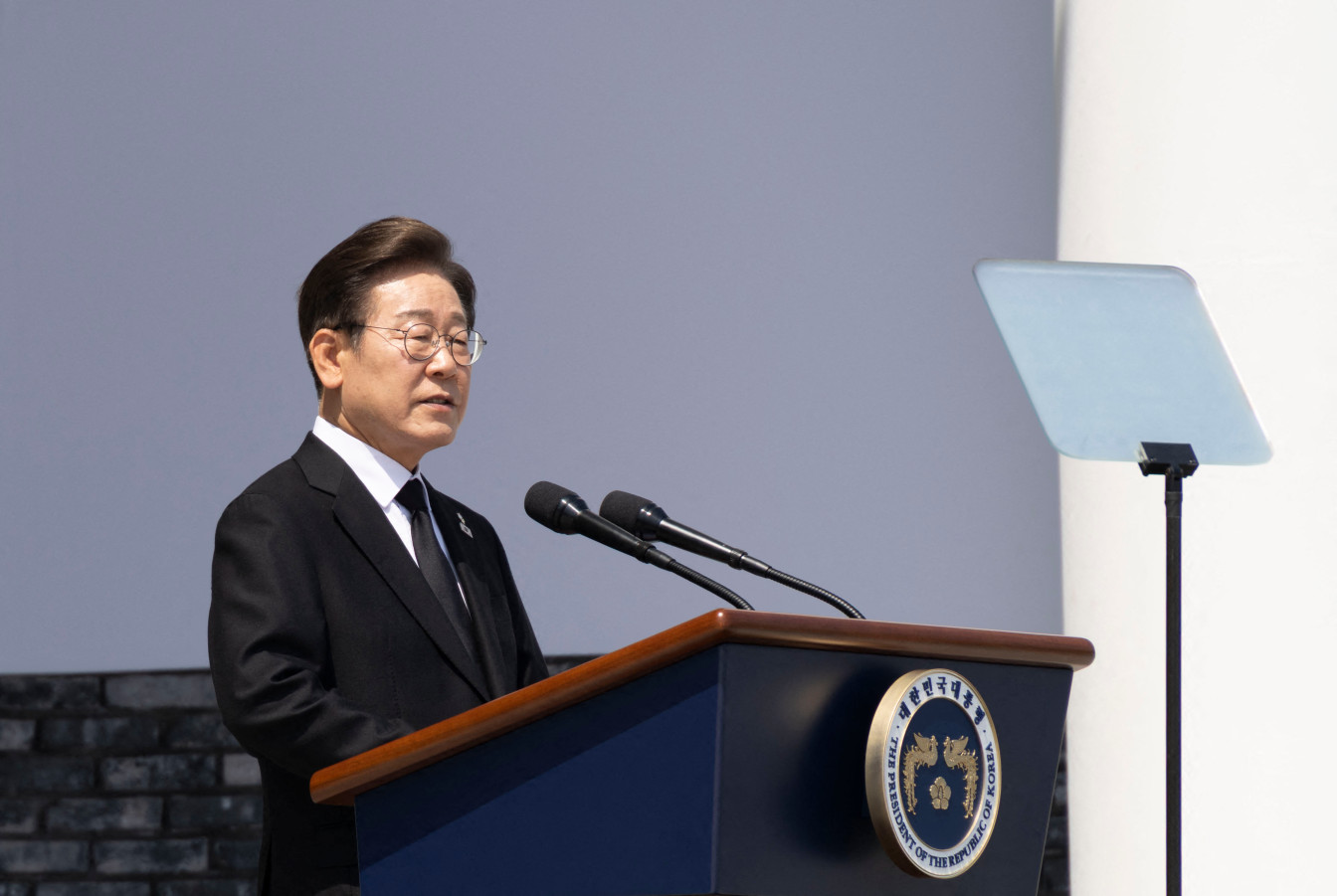The June 3 presidential election in Republic of Korea (South Korea) has produced a clear winner in the Democratic Party candidate, Lee Jae-myung, securing 49.42 per cent of the vote, as against 41.15 per cent by his main rival, Kim Moon Soo, of the Peoples’ Power Party.
The leadership vacuum since the turbulent events of last December following the sudden martial law declared by the then President, Yoon Suk Yeol, would now be filled by a left-leaning government.
By declaring martial law, President Yoon, elected in 2022 for a five-year term, had reacted impulsively when his frustration with a non-cooperative National Assembly boiled over. After the April 2024 elections in the 300-member National Assembly, the Opposition had 175 members. The main Opposition Democratic Party then adopted an obstructionist strategy, blocking all appointments, programmes and legislation of the President, leading to a paralysis in governance.
In the quest for division of power in the background of South Korea’s authoritarian past, the 1987 Korean Constitution provides for only one five-year term for the directly-elected President and four-year term for the directly elected National Assembly. The terms being different, the elections of the President and National Assembly are held separately, often leading to different parties controlling these two centres of power.
While the Constitution empowers the President to declare martial law on the grounds of national security, the declaration needs to be approved by the National Assembly. After the repeal of martial law by the National Assembly, impeachment proceedings against President Yoon had commenced and following a long legal battle in the Constitution Court, he was finally removed from office on April 4, 2025.
The election winner, 61-year-old Lee Jae-myung, is a former chairman of the liberal Democratic Party and had lost the 2022 presidential election to the impeached President Yoon Suk Yeol by a razor thin margin of 0.73 per cent votes. The incoming President comes from a rather humble background and was a human rights lawyer. Interestingly, his two liberal predecessors Moon Jae-in (2017-22) and Roh Moo-hyun (2003-2008) were also human rights lawyers.
In his electoral platform, Mr Lee promised financial aid to households, state support for the AI industry and measures to loosen the control of family owners on Korean chaebols. He has also suggested constitutional reforms, proposing two four-year terms for the President instead of the present one five-year term. Amending the Constitution would require support of at least two-third of National Assembly members, followed by a national referendum.
Democracy has developed deep roots in South Korea, with complete freedom of expression, an independent judiciary, a vibrant mass media and vocal trade unions. Elections are regularly held at all levels and power often swings between the conservatives and liberals. Since 1993, four Presidents – Kim Yong-sam, Kim Dae-jung, Roh Moo-hyun and Moon Jae-in — were left of centre, while three — Lee Myung-bak, Park Geun-hye and Yoon Suk Yeol – were right of centre.
South Korean public opinion is quite polarised, and almost equally divided between conservatives and liberals. Their main policy differences are around the extent of welfare measures, extent of support to MSMEs and approach towards North Korea and China. At present, the conservatives appear to be in some disarray as they decisively lost the April 2024 National Assembly elections and their last two Presidents were both impeached.
In the South Korean electorate, young people under 30 are 31 per cent of the vote, and over half are uncommitted to any political party. In South Korea, the youth unemployment rate is about 7.5 per cent, and lack of affordable housing forces youth to remain unmarried and to continue to live with their parents in rather small apartments. This has led to social tensions and a declining population.
In his June 4 inaugural speech, President Lee urged reclaiming national security, rebuilding the economy and restoring democracy. He declared that his administration will be “non-ideological, pragmatic and market oriented”. He announced launching an “emergency task force to confront economic stagnation” and promised “massive investment in AI and semi-conductors”. He announced a “thorough investigation” into the events surrounding the martial law and declared that those responsible will be held to account. President Lee needs to be cautious as any witch hunt would further deepen the political polarisation in the country.
Importantly, President Lee emphasised that South Korea will “reinforce the Korea-US alliance and strengthen trilateral cooperation with US and Japan”. On North Korea, he said that ROK would “deter nuclear threats and military provocations while keeping open channels of dialogue”. Alluding to China, President Lee said that Seoul would “approach relations with neighbouring countries through the lens of practicality and national interest”.
The incoming President’s immediate task would be to devise a strategy to tackle the 25 per cent tariff imposed by US President Donald Trump and soften the impact on South Korea’s export-led economy. The negative trends are unmistakable. Korean exports declined by 2.4 per cent in the first 20 days of May as compared to last year.
As many Korean products are part of the value chain of goods exported by China to the US, Korean exports to China declined by 7.1 per cent in this period and direct Korean exports to US declined by 14.6 per cent.
On foreign policy, the incoming President may moderate the pronounced pro-US stance on issues like total support to Ukraine and may work to restore the trajectory towards normalisation of relations with North Korea followed by former liberal President Moon Jae-in during 2018 -21.
India has a “special strategic partnership” with ROK. There is complete bipartisan support for strong India-ROK ties in both countries. India looks at South Korea as a source of investment, technology and skills in its march towards a “Viksit Bharat”. This growing partnership will get a boost from a stable and friendly government in Seoul.
